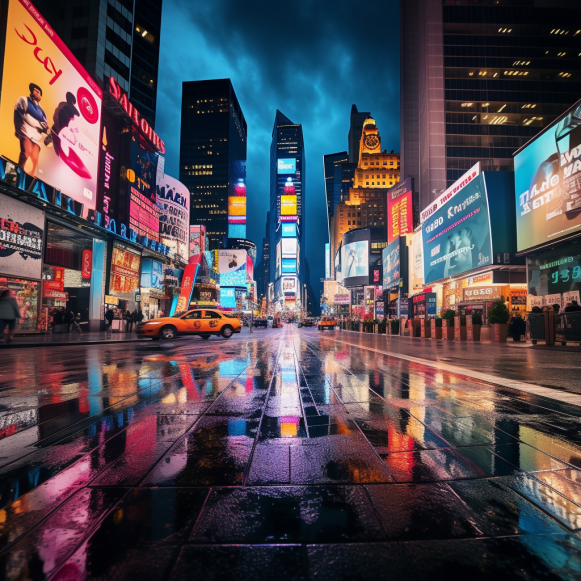These innovative startups are helping to bring social shopping into the mainstream in the US

- Social shopping is on the rise in the US, as big tech and upstarts alike chase e-commerce dollars.
- While social commerce has exploded in Asia, it’s still in its infancy in North America.
- Here are nine startups that are helping US brands, creators, and consumers get into social shopping.
In the United States, the race to integrate shopping into social media accelerated this year.
Big social platforms like YouTube, TikTok, and Pinterest are rapidly adding new commerce features. A slew of startups have also rushed to launch products and services that assist brands, influencers, and, perhaps most importantly, consumers in becoming accustomed to the idea of purchasing on social media.
Some companies, such as Whatnot and Flip, are developing separate apps to enable brands and creators to sell products via livestreams. Others, such as Orca and Ghost Agency, are taking a more agnostic approach, collaborating with brands on live-selling production for platforms such as TikTok and Twitch.
Many of these companies want to offer products and services that encourage US buyers to behave more like Asian consumers, where shoppable videos and livestream influencers drive billions of dollars in product sales each year.
Orca cofounder and CEO Max Benator told Insider that the maturity of the live-shopping ecosystem in China, which he witnessed firsthand on a recent business trip, astounded him.
“What I saw was incredible,” he said, referring to a nationwide training program in which companies teach livestream hosts how to effectively pitch products to users. “Here, people are still learning,” he said of the American market.
Importing shopping habits from other parts of the world to the United States is a difficult task.
Some newcomers are figuring out how to capitalize on existing consumer behaviors in the United States. Ntwrk, for example, built a business on exclusive product drops from well-known celebrities and designers, a popular selling style among streetwear brands.
Insider compiled a list of nine startups that are assisting creators, brands, retailers, and consumers in the United States in breaking into social shopping. Nominations were vetted by industry experts, readers, and the major social-media platforms.
The following businesses are listed alphabetically:
Buywith partners with brands to organize livestreams with creators on a company’s website
Buy with Adi Ronen (left) and Eyal Sinai (right).
Buywith provides technology that is used by companies such as Ulta ****Beauty, Dyson, and Tupperware to integrate livestream shopping into their websites.It provides a “shop with me” experience in which creators can share their screen, as they would on a video call, and demonstrate how they browse a brand’s website for products. The creator also appears in a smaller window on the page while livestreaming to interact with users.
Because it does not require app downloads or high-end production and equipment, Buywith positions itself as a simple and effective way for brands to connect with their customers. In addition, the company has a creator marketplace where brands can select influencers to host their events.
Shows are streamed live.
Since its inception in 2018, the company has raised a total of $9.5 million in funding.
“Social shopping has transcended the realm of mere products; it’s about selling experiences, values, and fostering a vibrant community,” a company spokesperson told Insider. “This reflects the evolving dynamics of the retail world.”
Emcee wants to turn creators into retailers with their own ‘storefronts’
Sahara, Sophie After several years of working in the fashion retail industry, John Aghayan had the idea for Emcee. He recognized the power influencers have in guiding social-media users’ shopping experiences.
Emcee goes beyond the traditional affiliate-marketing model that other platforms provide by allowing creators to curate online “storefronts” of their favorite products. It allows them to become “retailers” rather than just “affiliates,” according to Aghayan.
The platform integrates with Shopify’s API, allowing creators to access data about the performance of their storefronts. The company intends to release an app next year that will aggregate all “showrooms” into a scrollable feed.
Emcee currently primarily serves the high-end market.
Fashion designers and brands. It has collaborated with influencers to design bespoke products sold exclusively on the platform, and has partnered with brands such as Luar and Dion Lee. The company has also sponsored several shows at the most recent fashion weeks in New York and Paris, giving creators front-row seats.
“The problem is that [the industry] is attempting to retrofit commerce into something that the user is accustomed to using for something else,” says one analyst.
“Whether it’s for connecting with friends on Instagram or for entertainment on TikTok,” Aghayan explained. Instead, he believes that social commerce is beneficial.
Emcee or another external platform would be a better fit.
According to the platform, it currently hosts the storefronts of over 1,000 creators and over 250 brands.
Flavrs is a shoppable-video app for all things food and cooking
Flavrs is a shoppable app with a focus on food content. Cofounders Alejandro Oropeza and François Chu, both with Big Tech experience, launched the platform in 2022 after noticing the potential for an improved video-app experience that allows users to shop and recreate recipes.
“Short-form video is the new language, but what’s interesting is that it’s not just for kids.”
Are you paying attention? “We are the place where you can go from watching to doing,” Oropeza told Insider.
Flavrs offers a scrollable feed of short videos with the goal of delivering a “video-to-ingredients” and “video-to-takeout” experience. Because of an
integration with grocery delivery Instacart users can automatically add ingredients from a video recipe they see on the app to their shopping list; alternatively, they can be redirected to Uber Eats to order the dishes they see on the app for delivery, thanks to a newly launched feature. This feature is currently being tested in San Francisco with 25 restaurants, with plans to expand to other US cities.
In addition, the company recently launched an OpenAI-powered AI feature that allows users to personalize their content search and creators to easily upload and annotate plain-text recipes.
According to the company, it has raised $7 million in funding and its users include creators such as Binging with Babish and celebrity chef Eric Ripert. The platform offers a revenue-sharing model to creators and will launch a program in 2023 to give some of them equity in the company.
Flip is TikTok for users who just want to shop
Flip is a social shopping app that resembles TikTok if it focused solely on its e-commerce feature, TikTok Shop.
Flip users create short videos in which they review products that other users can buy through the app. Creators are compensated for video engagement and sales generated by their videos. The company also has a software division.
MagicOS is a seller’s product that provides sales tracking, inventory management, and marketing tools to merchants.
The company’s downloads have recently increased as a result of its [generous referral program](https://affiliate.insider.com/?h=e6cccee8b91ccd03573b5245efffef5b98291094aafcf9b46f9642848cce2ebd&platform=browser&postID=654a15642ef354b8a31339d On the Apple App Store, Flip is currently ranked among the top 15 shopping apps.
The app was released in 2019 with a different model centered on receiving clothing in the mail based on a user’s interactions with social content. In an April press release, the company stated that it had raised approximately $95 million in various funding rounds.
Ghost Agency is helping brands and influencers avoid coming on too strong during livestreams
Ghost Agency is a social-commerce company based in Los Angeles that works with brands and creators to make short videos, livestreams, and other social content shoppable.
Jenny Woo and Nicole Rechtszaid founded the startup in 2022, and it primarily focuses on platforms such as TikTok Shop, Twitch, and YouTube.
Amazon.com Live. It recently opened a studio in Los Angeles to assist brands with the coordination of live shopping streams and other content. It is also developing a live selling educational program for creators to help them understand how to use platforms like TikTok Shop.
Brightkins, Kafx Body, Trio Beauty, and Educational Insights are among the companies on the company’s client list, according to the company.
According to Ghost Agency’s cofounders, content and production style for livestream shopping must be customized based on country and brand.
“A lot of times brands will think production first, but production value doesn’t always equate to sales or equate to more engagement,” Woo went on to say. She advises brands looking to sell to US consumers to avoid making their videos feel too commercial.
“In terms of a US audience, it’s going to be something where you don’t want to directly sell to them,” Rechtszaid went on to say. “They don’t want to feel like they’ve been influenced.”
Livescale makes it easy for sellers to create branded shopping events
Livescale is a commerce platform designed for sellers who want to host branded live shopping events.
The white-label platform of the company allows sellers to customize the look of a shopping stream to match a company’s specific branding.
Livescale, which was founded in 2016, operates a Shopify app as well as a marketplace for brands, creators, content producers, and other individuals.
Connect with live-shopping talent. It also has an agency branch that provides services such as live-selling coaching and production.
Livescale stated that it has collaborated with brands such as L’Oréal, Giorgio Armani Beauty, and Lancôme. Chanida Rayrolles, Livescale’s chief growth officer, told Insider that the platform hosts between 50,000 and 200,000 streams.
Depending on the season, monthly active shoppers.
Ntwrk is blending product drops and social commerce
Ntwrk is a social shopping platform centered on livestreams and exclusive drops, with an emphasis on collectibles such as designer toys, trading cards, and shoes.
The platform can be used by brands, artists, and resellers to list products for sale, host auctions, and host live shopping events. The company launched in 2018 and has hosted products and limited drops for companies such as Riot Games, Levi Strauss & Co., ESPN, and Complex Networks, according to the New York Times. Ntwrk ****is in acquisition talks.
Aaron Levant, CEO of Ntwrk, told Modern Retail(https://www.modernretail.co/podcasts/theres-only-so-many-really-illustrious-people-out-there-who-put-out-products-ntwrks-aaron-levant-on-expanding-the-livestream-platform-beyond-its-celebrity-roots/)
last November that the company primarily works with high-profile celebrities or brands, as well as resellers who have a storefront or a website.
Inventory worth millions of dollars is stored in a warehouse.
“Exclusive celebrity drops are the shiny object that sit at the top of that funnel that draws people in,” Levant went on to say. “But they really stay for the thousands of other livestreams that we have on a monthly basis.”
Orca creates the infrastructure for brands to launch and scale their social shopping strategies
Orca describes itself as a “complete livestream and social-commerce solution.” Max Benator and Lauren Stevens founded the company in 2020 to help brands strategize, launch, and scale their social-commerce operations on social media and shopping platforms such as TikTok, YouTube, and Amazon.
Orca collaborates with brands on design and production.
Seven days a week, it broadcasts live shopping shows from its two studios in Culver City, California. It also makes shoppable short videos and manages
affiliate programs with creators and is in charge of back-end operations such as merchandising strategy, inventory management, and technical support.
Integrations for social commerce.
The company employs 20 people and has two dozen in-house livestreaming hosts. It has collaborated with Estée Lauder, ELF Cosmetics, Unilever, Nestlé, Samsung, and KimChi Chic Beauty, among others. It has also organized events for Amazon and Zappos.
Whatnot believes livestream shopping fosters community and is more efficient than other types of e-commerce
Whatnot was founded in 2019 as a marketplace for collectibles such as Funko figurines, and it claims to be one of the largest livestream-shopping platforms in the US. Whatnot, which is backed by venture capital firms Andreessen Horowitz, YC Continuity, and CapitalG, was valued at $3.7 billion after raising a $260 million Series D round in 2022.
Whatnot is betting on livestream shopping to foster community and allow sellers of all sizes to build long-term businesses beyond social media and static websites.
marketplaces. According to Whatnot, “a livestream is a more efficient way of selling because it allows businesses to sell more products faster than a traditional e-commerce website.”Consumers who are watching these have a strong sense of urgency and excitement.
“livestreams,” a company representative told Insider.
According to the company, nearly 2,000 of its sellers make more than $10,000 per month in sales.
More than 100 sellers sold over $1 million in merchandise each in 2022, with top sellers earning close to $8 million per year. According
According to internal research, Whatnot’s daily active users spend more time on the platform than Instagram and X combined.






